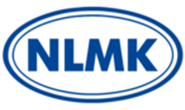Market Segment

October 8, 2020
No Sign of Compromise in NLMK Strike
Written by Sandy Williams
Workers at NLMK Pennsylvania in Farrell, Pa., are in their seventh week of a strike over healthcare and what they claim are unfair labor practices with little progress evident in negotiations.
NLMK released a video for employees on Oct. 1 to explain the structure of the proposed new health plan and the savings for workers over the life of the contract. The company says that the USW is misleading members by claiming employees will not be able to afford the new proposed health plan.
“It remains a mystery how the USW leadership is telling its members that they cannot afford something that costs less than the Union’s own proposal, which will end up raising healthcare costs of its members,” said a company spokesperson in a press release on Oct. 8.
NLMK’s recent proposal keeps the yearly cost to the employee at the same rate as the last year of the previous four-year contract offer, less than the premiums projected for the union’s plan. The union claims its plan will save the company $2.1 million over the next four years, a projection NLMK says is unrealistic due to erroneous assumptions in the data.
Todd Clary, representing USW Local 1016-03, says the strike has caused some skilled labor employees to leave for other jobs with better healthcare plans. In an interview with the Sharon Herald, Clary said the union is seeking a 3 percent pay increase in year one of the agreement and 2.5 percent for the remaining years, as well as a $3,000 signing bonus. NLMK’s offer, says Clary, includes an initial 2.5 percent raise with 2 percent annually for the remainder of the contract and no signing bonus.
“We have also heard many concerns raised about what our intentions may be during the next contract period, which will be 5-8 years from now,” said the NLMK spokesperson. “Although we generally negotiate labor contracts for four-year periods at a time, we have agreed to offer the union an eight-year contract that guarantees annual raises and fixes the healthcare expenses in an attempt to eliminate uncertainty of what might happen in the next contract four years from now.”
NLMK management says it remains committed to bargaining in good faith to reach an agreement that will return employees to work, but expressed skepticism regarding the union’s commitment.
“We are beginning to believe that it no longer matters what the company offers as it appears returning to work is not the first and foremost agenda of the USW leadership,” said the NLMK spokesperson.
A protracted strike is likely considering the impasse between the two parties. Local 1016-03 President James Wells, Jr., told NLMK management in a video, “We are going to fight every single day for everything that is owed to us and what we deserve.”
Currently, the plant is running at reduced levels by salaried employees and filling customer orders as able.
Note that workers at NLMK’s Portage, Ind., mill, who are represented by a different union, are not on strike.







